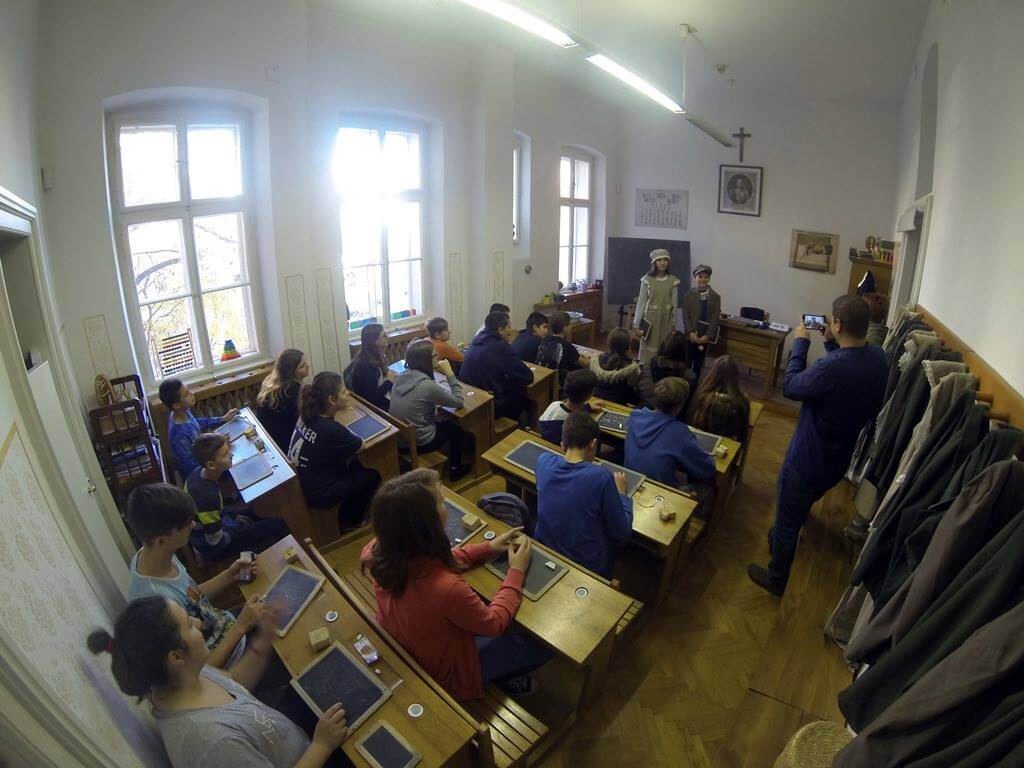Croatian School Museum: 120th Anniversary Clouded by Earthquake Damage
September 4, 2021 - The Croatian School Museum, despite marking 120 years of existence, isn't really in a celebratory mood as it remains closed to the public and awaiting earthquake reconstruction.
With this weekend being the final one for the summer break before the 2021/22 school year begins in Croatia, families in Zagreb could've ideally used the weekend to introduce the kids to the importance of education by taking them to the Croatian School Museum. However, with the building still undergoing reconstruction after 2020's earthquakes, it would be wise to wait a bit longer before going to see the collection of items and historical evidence that tell the story about the development of education in Croatia.
What is interesting to note, however, is that with 2021 marking 150 years since the first Croatian teacher congress that shaped the course of the education system in the country, it is also the year that marks 120 years of the Croatian School Museum.
The museum first opened its doors on August 19, 1901, marking the 30th anniversary of the Croatian Education and Literary Assembly (the oldest association of Croatian teachers, which is still active today). The museum is located at Trg Republike Hrvatske 4 (Republic of Croatian Square), near Zagreb's Croatian National Theatre (HNK).
''The basis of the museum material was made up of objects from the teaching exhibition that was held in Zagreb back in 1871 and 1892, and materials were also donated by various teachers, schools, publishers, and education material manufacturers,'' explains the museum's website.
The new and current permanent exhibition was refreshed back in the year 2000 and many visitors have become interested in visiting the museum since then. With occasional exhibitions, we deal with topics from the history of school and education, and we represent the materials from the museum's collection,'' the site adds. 
© Hrvatski Školski Muzej
The museum has gone through two world wars, one regional war and four different political systems. Štefka Batinić, the museum's headmaster, wrote for the Croatian School Museum blog site about the history of the museum and teaching in Croatia using historical sources from these periods. She noted that during that past, which, in Croatia, much like today, saw society divided owing to various ideological conflicts, teachers were also not spared discussions and different views on how society might move forward.
Still, one can assume that despite reading up on these conflicts which were of paramount significance, teachers were still united in putting their students first despite disagreeing with each other on what the best way to provide them with the most quality education and future was.
It is also interesting to note from Batinić's writing how teachers in charge of teaching new generations of pupils were perceived during the times of the Austro-Hungarian Monarchy, when events and reforms which were the cornerstone of the current Croatian education system started to unfold.
''Croatian teachers (class teachers, working with the youngest among us) were denied the epithet of Croatian intelligence (in the education community, the term was reserved for the academically educated high-school and university professors), but their tendencies and goals were directed towards the finest practice examples of the teachers' community in Austrian and German lands,'' wrote Batinić.
Batinić's blog also cynically wrote in the caption underneath the photo of a damaged chimney on the museum that ''hopefully, it won't collapse before reconstruction begins.''
''We don't feel like celebrating. We'll celebrate when the reconstruction begins. Some important people from the city visited us recently. We're thankful for that,'' concluded Batinić in her blog post.
With faculties and higher educational institutions seeing progress in the reconstruction process following 2020's earthquakes, other educational institutions and, as we can see, museums, still await their turn for reconstruction as the bitter taste in their mouths grows. It isn't surprising, given that in the eyes of many, this government prioritises neither reconstruction nor education in general.
Read about Croatian politics and history since 1990 on our TC guide.
For more about history in Croatia, follow TCN's dedicated page.


